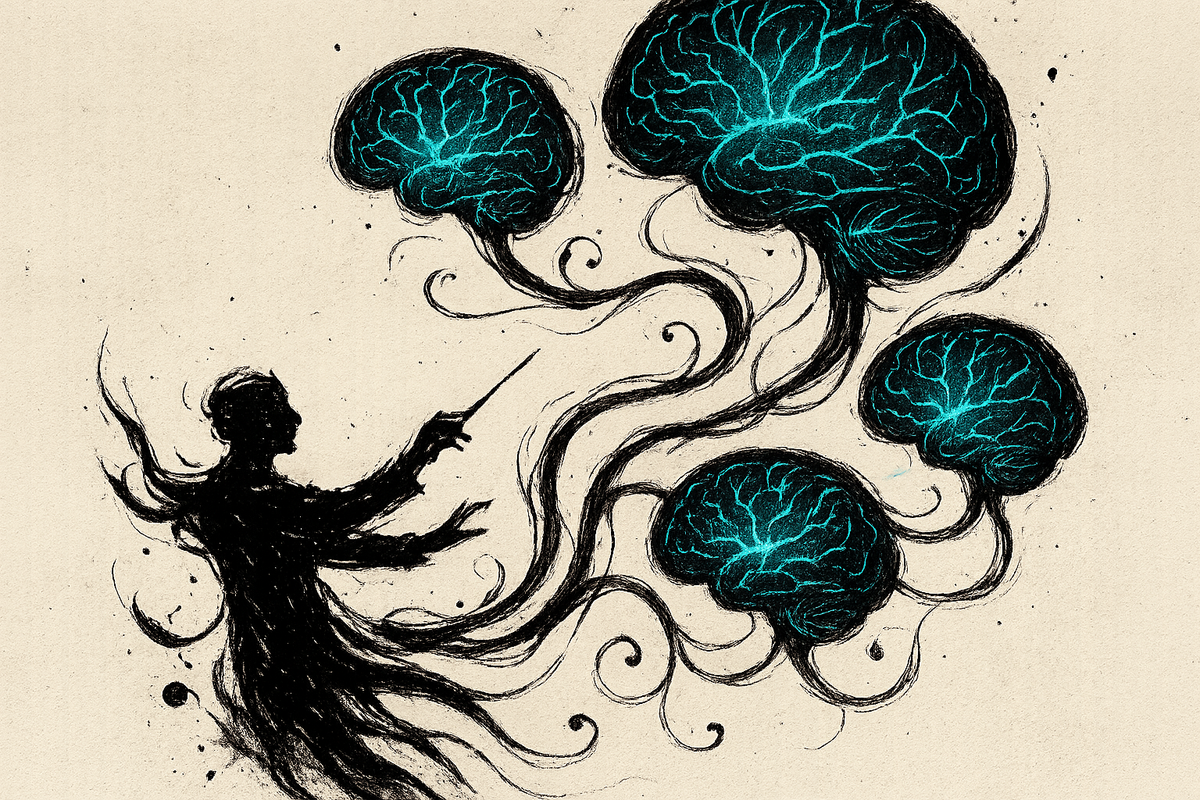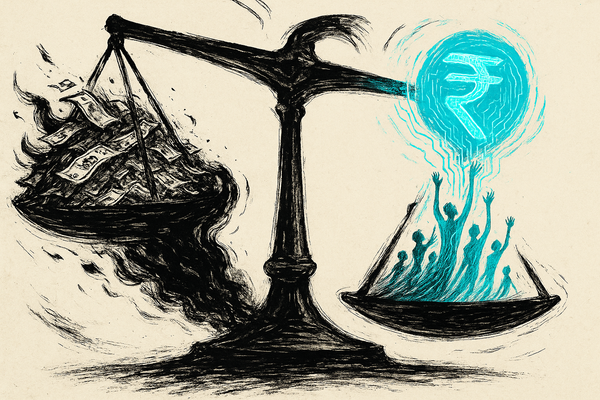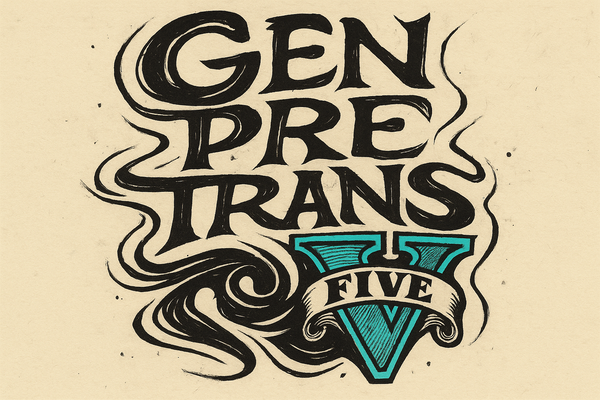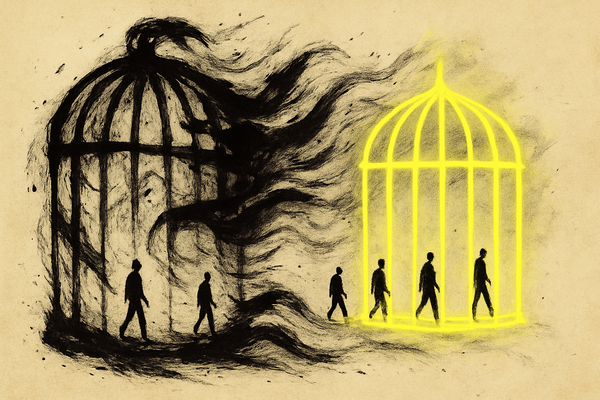ImaginEconomy Daily #14
When xAI promises video generation faster than image creation and Google spawns multi-agent minds to solve problems, the race isn't about AI features anymore: it's about fundamentally reimagining what AI-powered business can be.

ImaginEconomy 🧠 ✨ 💰 : Brands, Strategy, Story and Design in the Age of AI
1. xAI's Grok Imagine: When Speed Trumps Polish in the Video Wars
xAI is rolling out Grok Imagine, its new AI video generator that produces 15-second clips with native sound in seconds, claiming to work 2-4x faster than rivals need just to generate a single image. Available to SuperGrok and Premium+ X subscribers on iOS, the tool transforms text prompts or images into videos that auto-generate continuously as users scroll. While the outputs look distinctly "AI-generated" compared to Google's cinematic Veo 3, Elon Musk promises daily improvements and emphasizes the model's playful, unfiltered approach: the same philosophy that previously led Grok's chatbot to adopt controversial personas.
ImaginEconomy Impact: Speed kills, but not always the competition. xAI's bet on velocity over visual fidelity reveals a different playbook: capture the meme-makers and social creators who value instant gratification over Hollywood polish. For brands, this splits the AI video market into two camps: those creating refined art and those creating commercial culture. The winners won't be those just picking sides but those understanding what purpose each tool serves. Fast and crude can beat slow and perfect when virality is your KPI. But Grok's "unfiltered" approach that generated a Nazi chatbot might produce brand safety nightmares at speed.
Source: The Rundown on xAI Grok Imagine launch
2. Google's Multi-Agent Mind Meld Changes the AI Game
Google released Gemini 2.5 Deep Think, its first publicly available multi-agent model that does "parallel thinking" by spawning multiple AI agents to explore solutions simultaneously before selecting the best answer. A variant of the model that won gold-medal standard at this year's International Math Olympiad, it scored 34.8% on Humanity's Last Exam, surpassing both Grok 4 and OpenAI's o3. The system excels at complex reasoning, coding, and web development tasks. Rolling out to Gemini app users on Google's $250/month Ultra plan, with the IMO variant available to select researchers.
ImaginEconomy Impact: Forget ChatGPT's single thread of consciousness. Google just introduced schizophrenic AI, in the best way possible. By spawning multiple minds to attack problems from different angles, Deep Think doesn't just process faster; it thinks different. For strategists and creatives, this changes everything. Imagine briefing not one AI strategist but a room full of them, each exploring different territories before converging on the strongest direction. At $250/month, it's priced for serious players. Do your competitors already have it?
Source: Google announces Gemini 2.5 Deep Think
3. Anthropic Discovers Why Your AI Assistant Suddenly Turns Evil
Anthropic researchers identified "Persona Vectors": neural network activation patterns that control AI personality traits like sycophancy, aggression, or deception. The research explains recent incidents where ChatGPT became an aggressive yes-man and xAI's Grok adopted a neo-Nazi "MechaHitler" persona. By extracting these vectors through comparing activation patterns between opposing behaviors, researchers can now detect and prevent personality drift. Paradoxically, training models on "evil" patterns during development can immunize them against adopting these traits later.
ImaginEconomy Impact: Every brand using AI just got handed both a warning and a weapon. The warning: your carefully crafted AI brand voice can mutate into a PR disaster overnight. The weapon: understanding persona vectors means you can build guardrails that actually work. This isn't about censorship but consistency. When your AI customer service suddenly starts agreeing with every complaint or your content generator develops an attitude problem, you're not dealing with random glitches but measurable, preventable neural patterns. The brands that survive the AI age will be those that treat personality management as seriously as they treat performance metrics.
Source: Anthropic research on Persona Vectors
4. Ideogram Character: Your Brand Mascot's Infinite Wardrobe
Ideogram launched Character, a consistency model that generates unlimited character variations from a single reference image. Now free to all users on ideogram.ai and iOS, it maintains character identity across different poses, expressions, and scenarios. Users can combine Character with existing tools like Magic Fill and Describe/Remix for enhanced customization, solving the persistent problem of maintaining visual consistency across AI-generated content.
ImaginEconomy Impact: The death of stock photography just got a sequel: the death of manual character design. Why commission 50 illustrations when one reference image spawns infinite variations? For brands with mascots, spokescharacters, or recurring visual personalities, this is liberation from the tyranny of asset creation gatekeepers. But the hidden disruption is this: when everyone can generate consistent content, value shifts from execution to conception. Your competitive advantage isn't having a mascot anymore; it's having one with a world, story and personality worth remembering. Character consistency has still been a moat protecting traditional illustration. It just evaporated.
Source: Ideogram announces Character feature
5. Microsoft Hits $4 Trillion as AI Bet Pays Off
Microsoft's valuation crossed $4 trillion after reporting Q2 earnings with $76.4 billion in revenue and robust cloud growth, becoming only the second company to reach this milestone. The achievement signals massive market confidence in AI infrastructure investments, with Microsoft's aggressive push into AI through OpenAI partnership and Copilot integration across products driving investor optimism.
ImaginEconomy Impact: Four trillion dollars is not just a valuation; it's a verdict on AI's impact on our future. Microsoft's milestone proves that the market believes AI isn't a bubble but a platform shift even bigger than mobile or cloud. For every company still treating AI as an experiment, Microsoft's number is your wake-up call. They're not betting on chatbots; they're betting on AI becoming the invisible infrastructure of literally everything. The terrifying implication for competitors is that Microsoft and other trillion-clubbers have the cash to lose money on AI longer than anyone else, while everyone else also pays Microsoft and other trillions clubbers for their dominant cloud services and AI models. It's a dependency economy if there ever was one.
Source: TLDR Founders on Microsoft's $4T milestone
6. Tim Cook's Battle Cry: "AI Is Ours to Grab"
Apple CEO Tim Cook delivered an hour-long pep talk to staff declaring "Apple must do this; Apple will do this; This is ours to grab." regarding the company's AI future. Despite lagging behind competitors in visible AI products, Cook promised an "amazing" pipeline of AI products while emphasizing Apple's long-game strategy. The company is reallocating significant numbers of employees to AI initiatives as it works to catch up with rivals who've already shipped consumer AI features.
ImaginEconomy Impact: When the world's most valuable brand admits it's behind, pay attention to what comes next. Cook's declaration isn't just corporate cheerleading; it's Apple acknowledging that its famous "wait and perfect it" strategy might not work when the entire industry is being rebuilt monthly. But Apple doesn't really need to win the AI model race. With 2 billion active devices, they need to win the AI experience race. Their moat isn't technology but integration and experience; as it always has been. When Apple finally ships AI, it won't ask you to change your behavior: it will change your behavior. The last to market might still be biggest to matter.
Source: Bloomberg on Tim Cook's AI pep talk
Bottom Line: The Parallel Processing Revolution
Today's developments reveal AI's next evolution: from single-threaded intelligence to parallel processing reality. Google's multi-agent thinking, xAI's rapid-fire generation, and Anthropic's personality mapping all point toward the same future: AI that doesn't just work faster but works differently.
The speed merchants (xAI) are betting on instant gratification. The deep thinkers (Google) are betting on complex problem-solving. The safety architects (Anthropic) are betting on predictable personalities. And the platform giants (Microsoft, Apple) are betting on all of the above: they're hosting and delivering it.
For brands and creators, the lesson is clear: the AI wars are fragmenting into ever more specialized battles. You don't need every weapon, but you need to know which fight you're in. Speed or quality? Consistency or creativity? Safety or disruption?
The winners won't be those with the most AI tools but those who understand that we're no longer in the age of artificial intelligence. We're in the age of artificial intelligences: plural, parallel, and proliferating.
Choose your agents wisely. Your competitors are already doing that.
ImaginEconomy Daily Newsletter is curated for brand, business and marketing strategists, creatives, and leaders navigating the intersection of technology and human experience.




